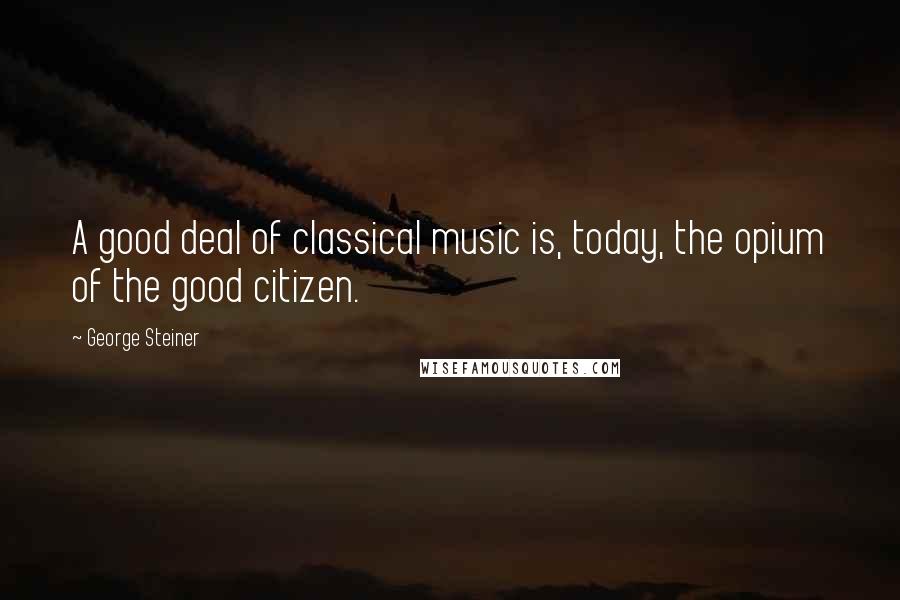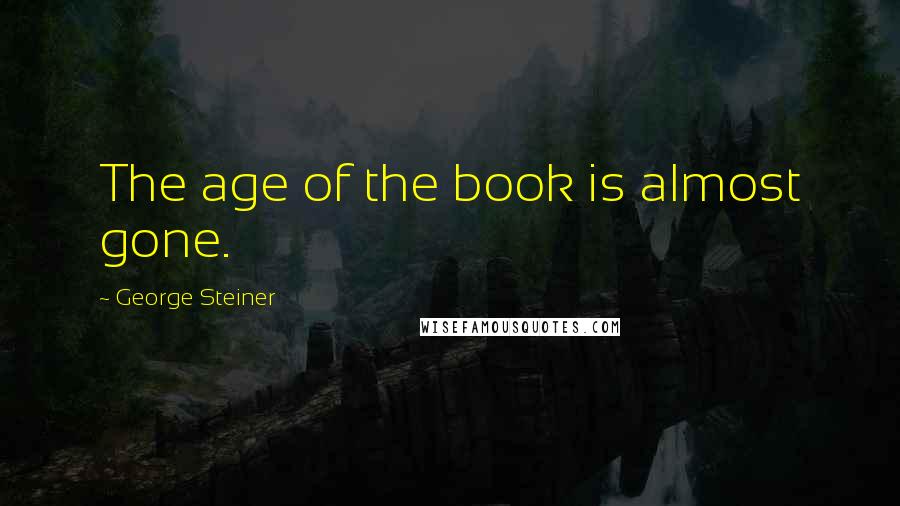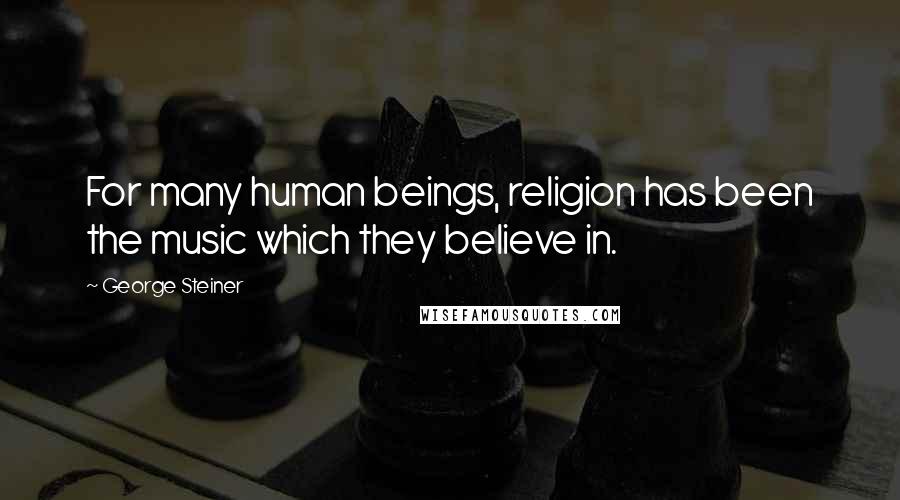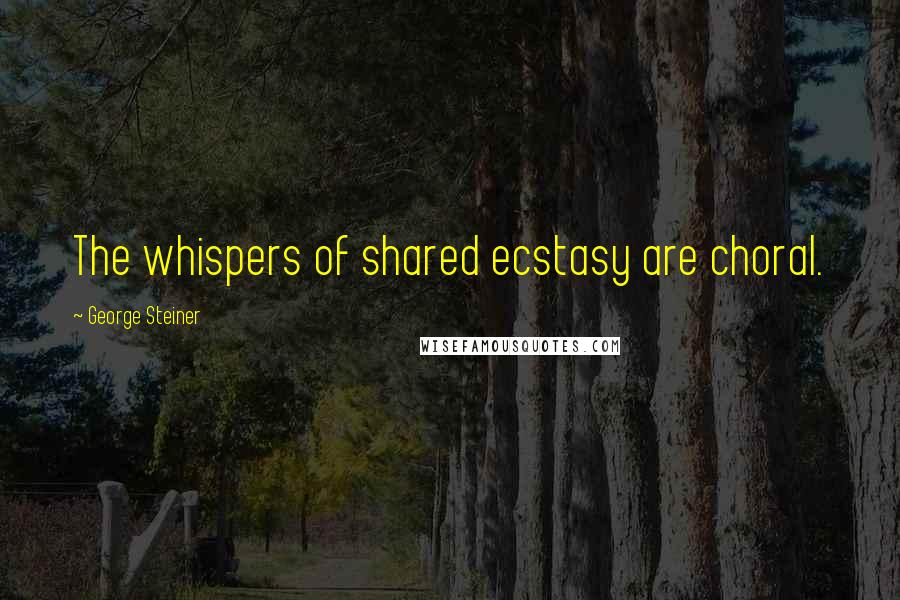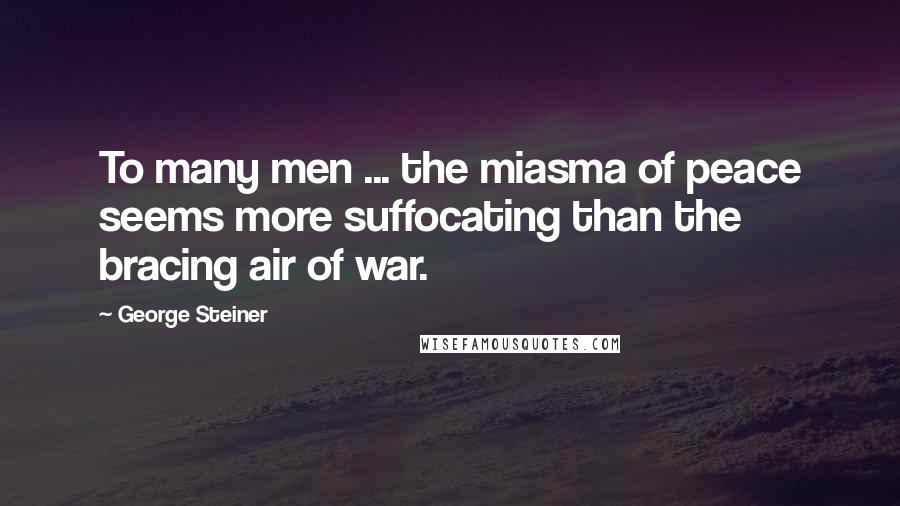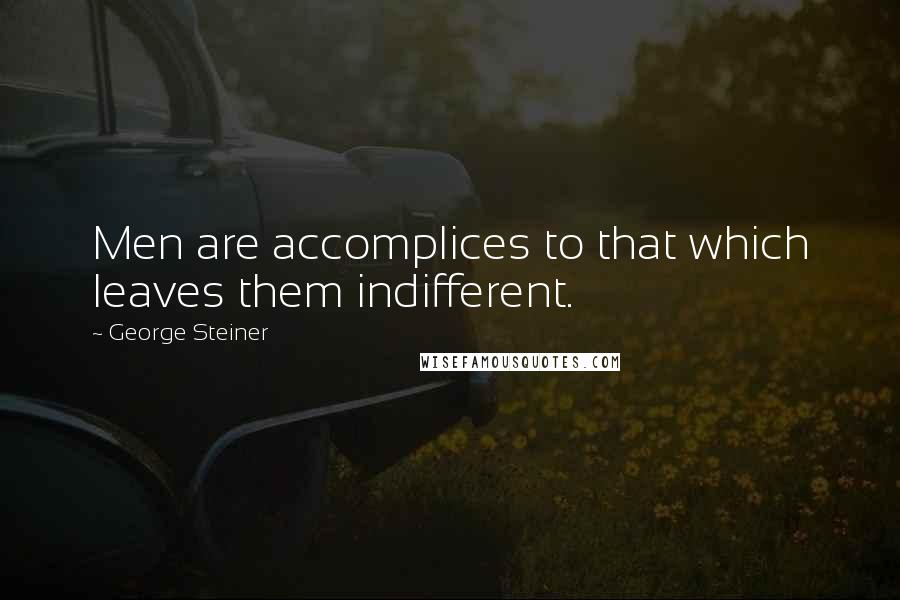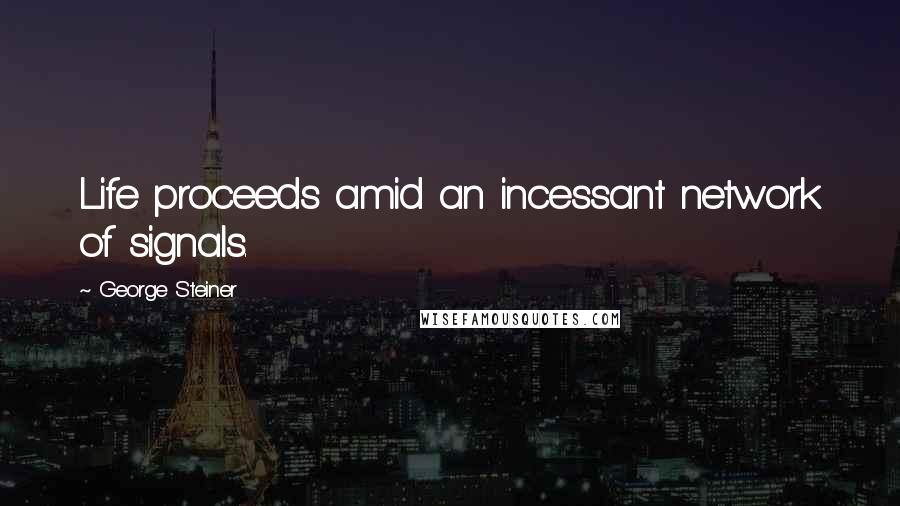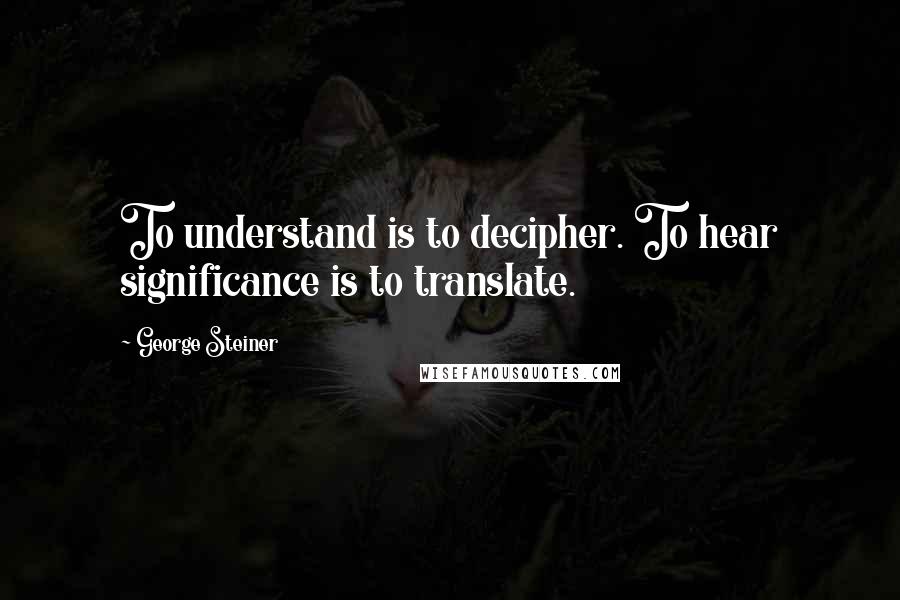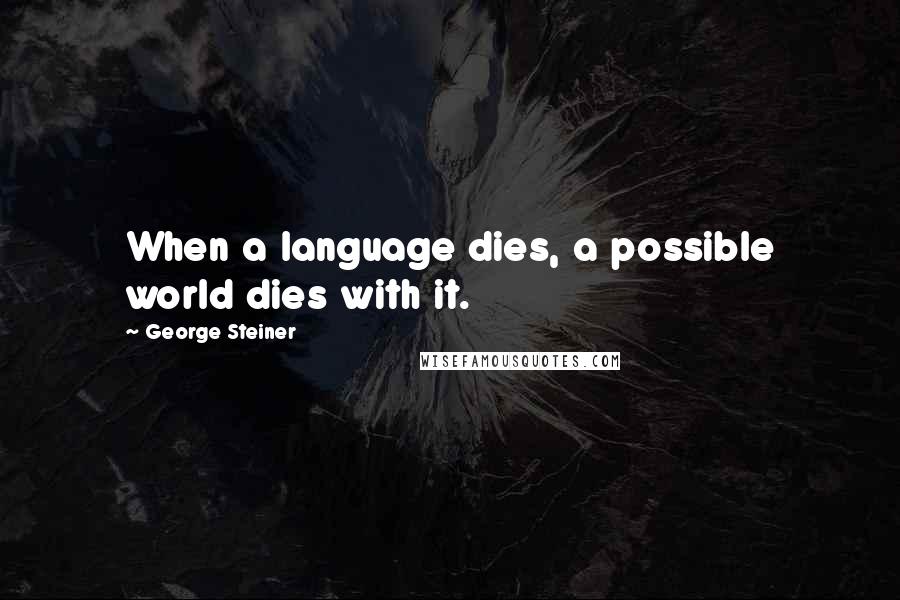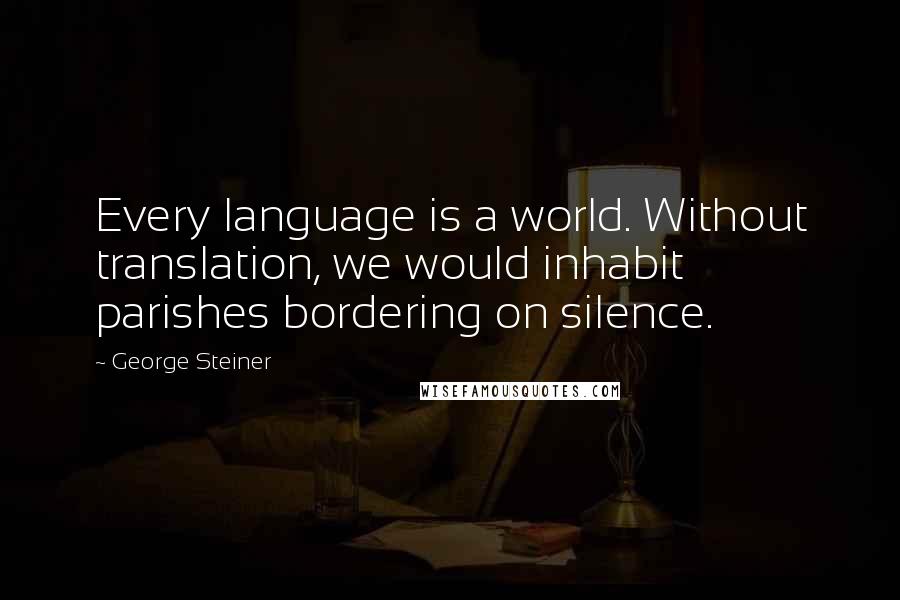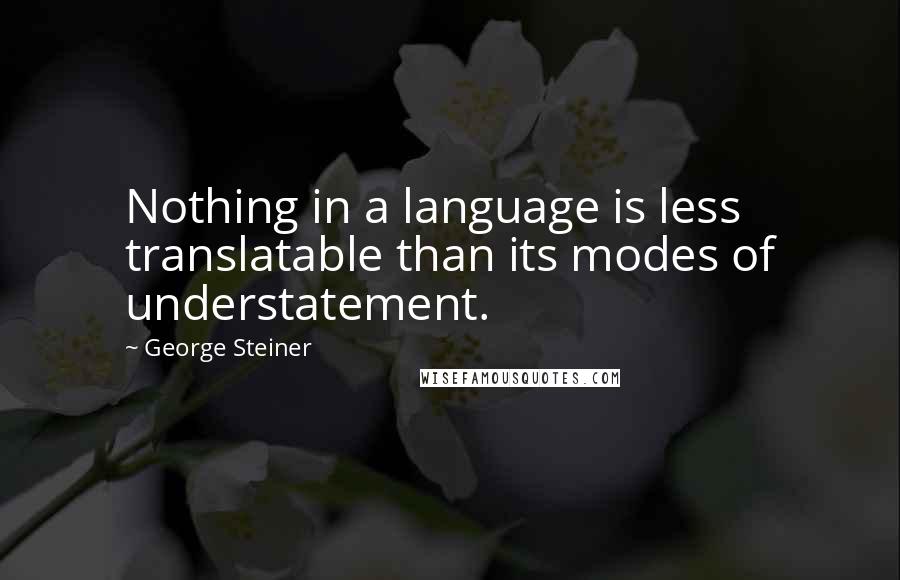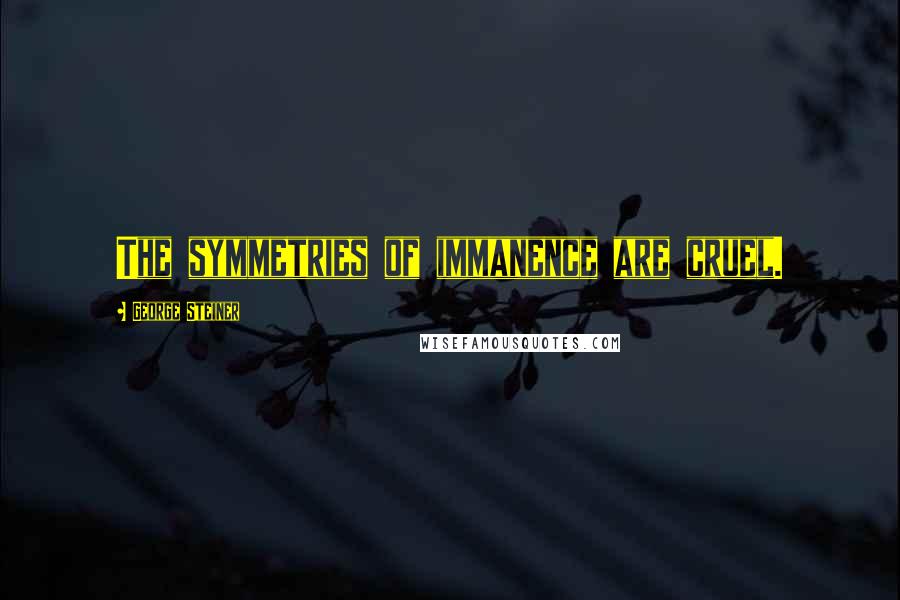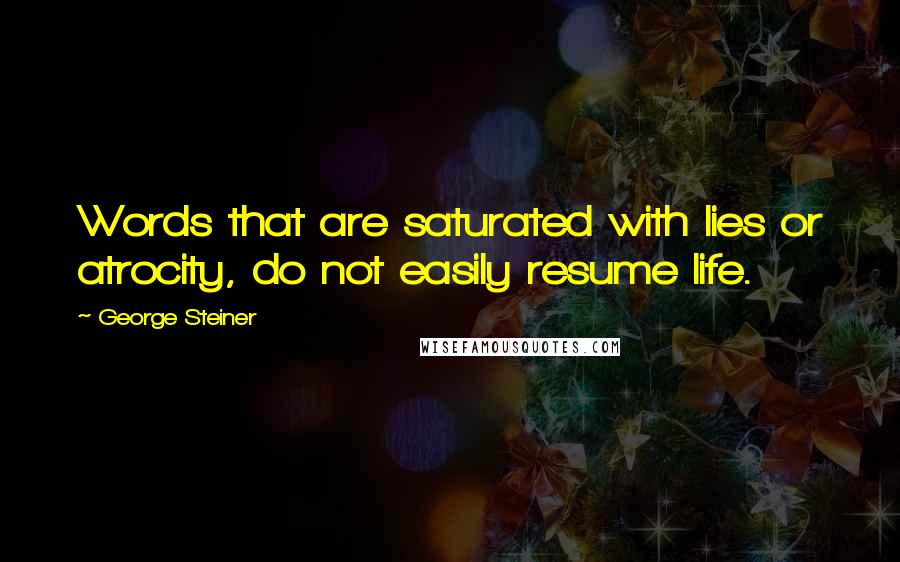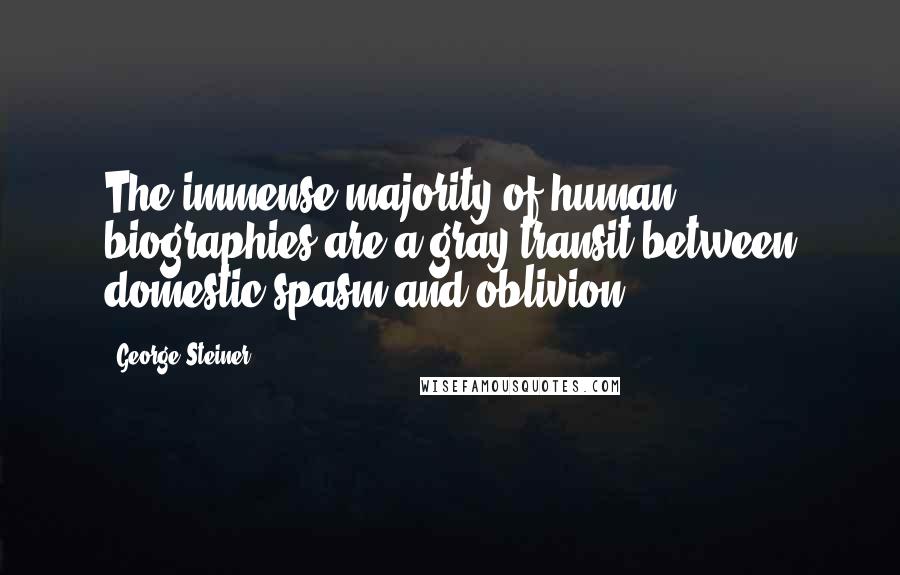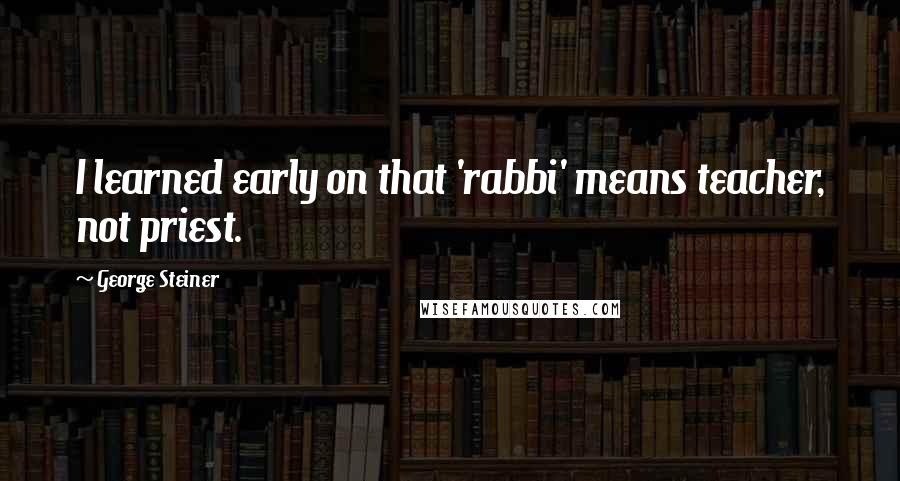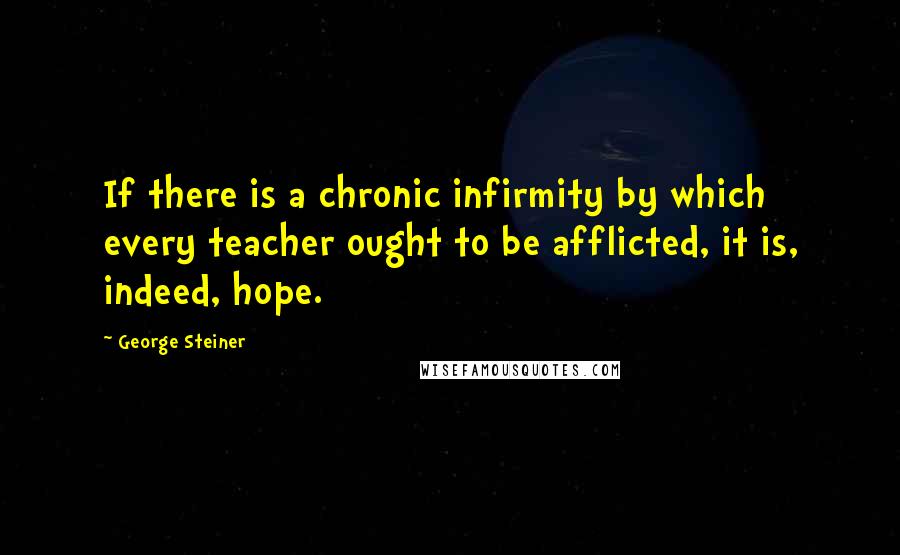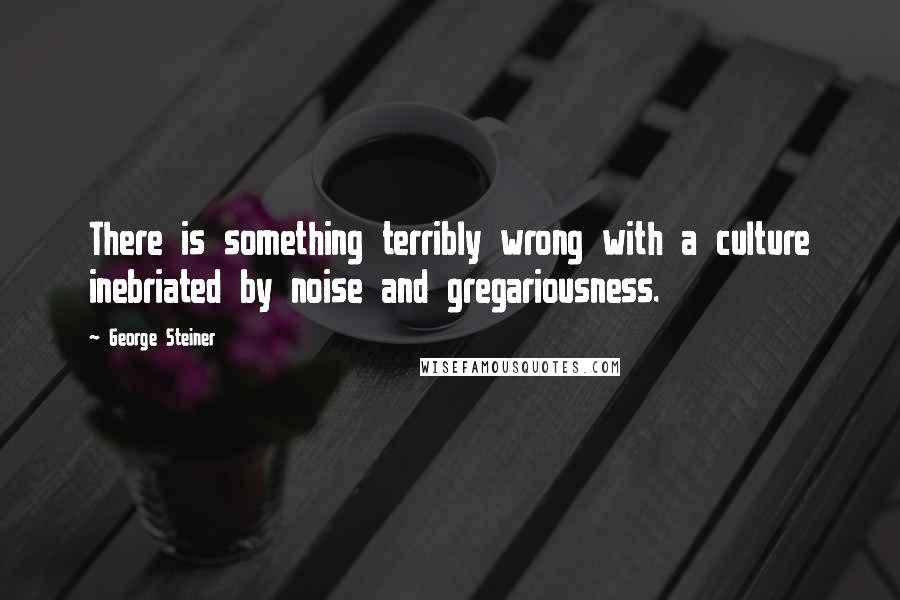George Steiner Quotes
Top 38 wise famous quotes and sayings by George Steiner
George Steiner Famous Quotes & Sayings
Discover top inspirational quotes from George Steiner on Wise Famous Quotes.
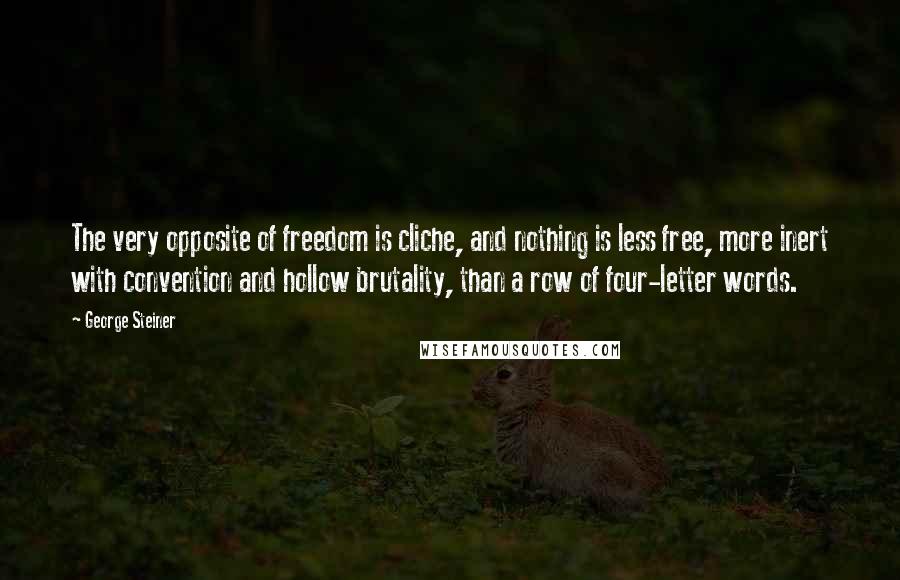 The very opposite of freedom is cliche, and nothing is less free, more inert with convention and hollow brutality, than a row of four-letter words.
The very opposite of freedom is cliche, and nothing is less free, more inert with convention and hollow brutality, than a row of four-letter words.
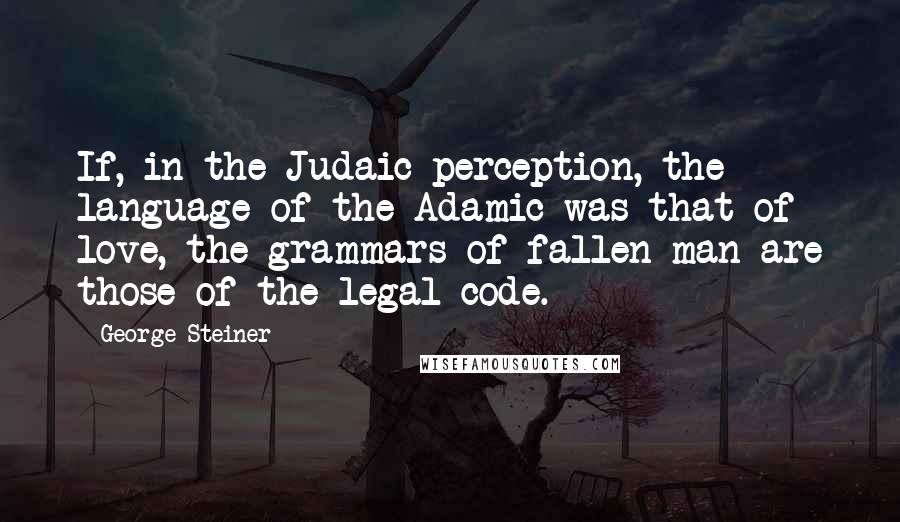 If, in the Judaic perception, the language of the Adamic was that of love, the grammars of fallen man are those of the legal code.
If, in the Judaic perception, the language of the Adamic was that of love, the grammars of fallen man are those of the legal code.
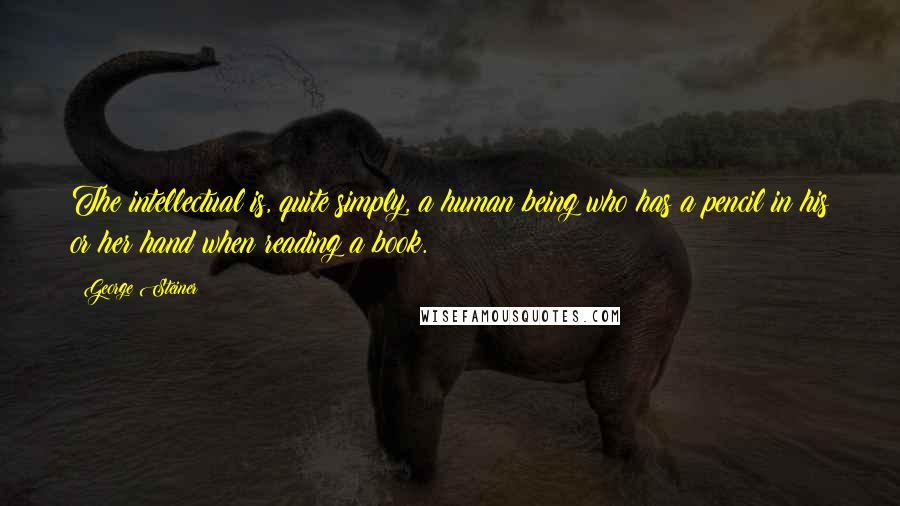 The intellectual is, quite simply, a human being who has a pencil in his or her hand when reading a book.
The intellectual is, quite simply, a human being who has a pencil in his or her hand when reading a book.
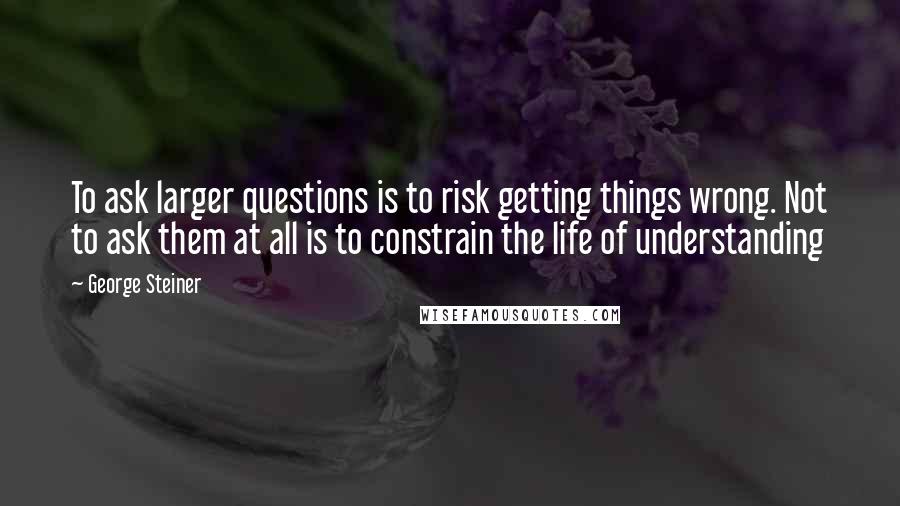 To ask larger questions is to risk getting things wrong. Not to ask them at all is to constrain the life of understanding
To ask larger questions is to risk getting things wrong. Not to ask them at all is to constrain the life of understanding
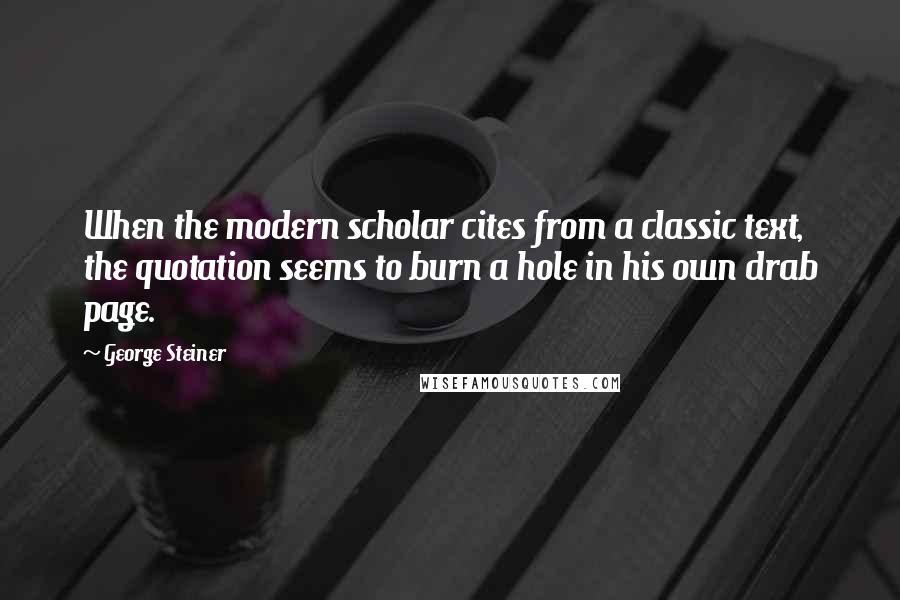 When the modern scholar cites from a classic text, the quotation seems to burn a hole in his own drab page.
When the modern scholar cites from a classic text, the quotation seems to burn a hole in his own drab page.
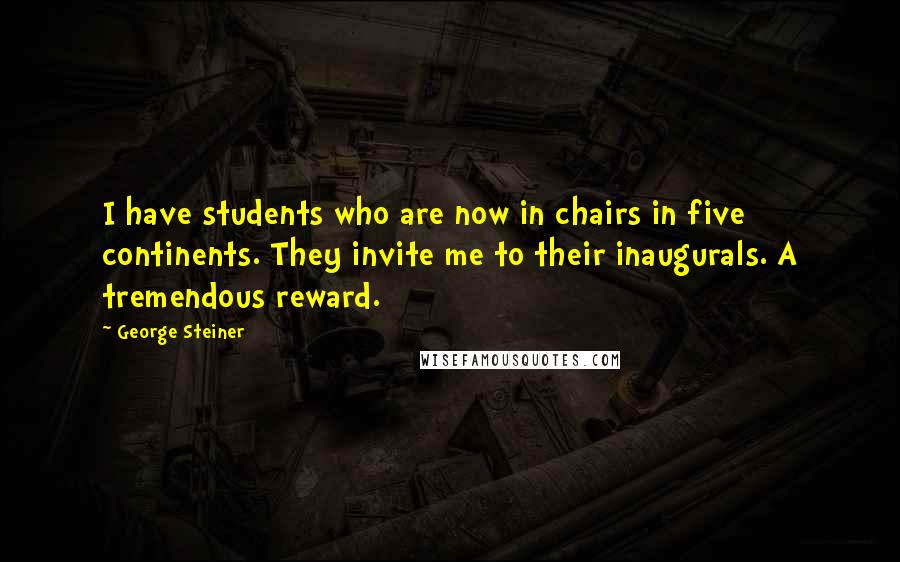 I have students who are now in chairs in five continents. They invite me to their inaugurals. A tremendous reward.
I have students who are now in chairs in five continents. They invite me to their inaugurals. A tremendous reward.
 We know that a man can read Goethe or Rilke in the evening, that he can play Bach and Schubert, and go to his day's work at Auschwitz in the morning.
We know that a man can read Goethe or Rilke in the evening, that he can play Bach and Schubert, and go to his day's work at Auschwitz in the morning.
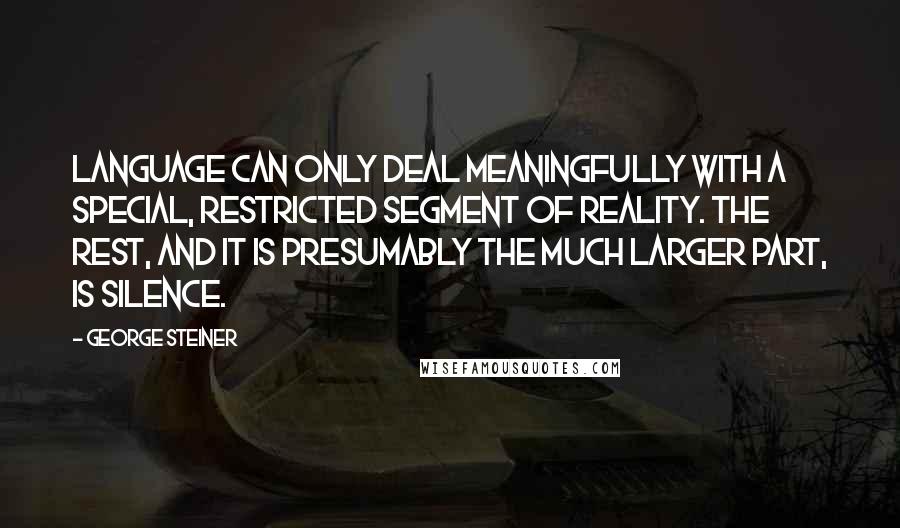 Language can only deal meaningfully with a special, restricted segment of reality. The rest, and it is presumably the much larger part, is silence.
Language can only deal meaningfully with a special, restricted segment of reality. The rest, and it is presumably the much larger part, is silence.
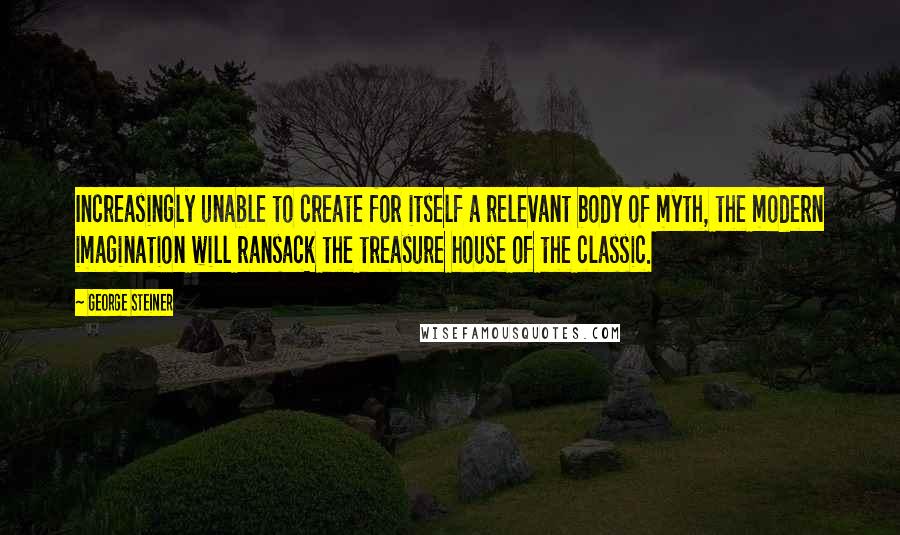 Increasingly unable to create for itself a relevant body of myth, the modern imagination will ransack the treasure house of the classic.
Increasingly unable to create for itself a relevant body of myth, the modern imagination will ransack the treasure house of the classic.
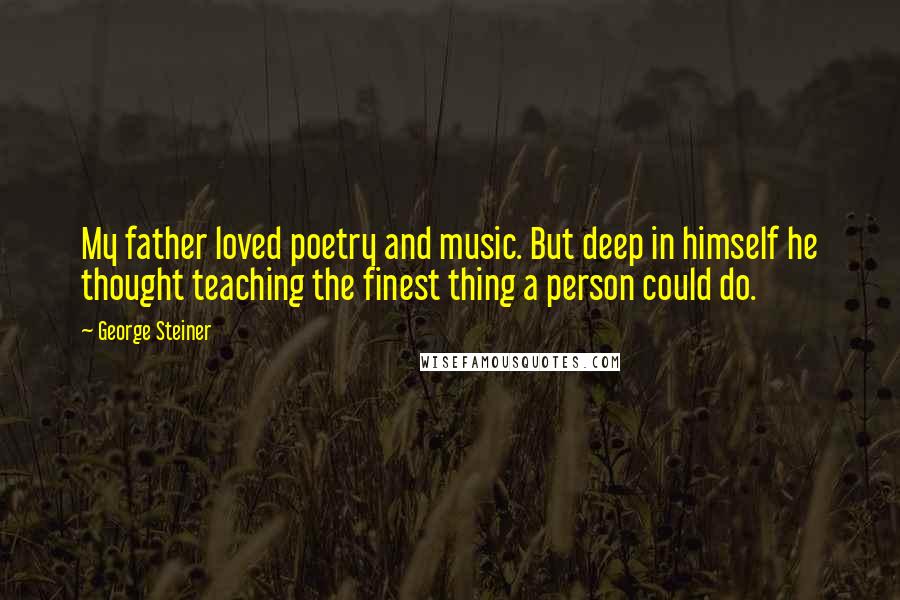 My father loved poetry and music. But deep in himself he thought teaching the finest thing a person could do.
My father loved poetry and music. But deep in himself he thought teaching the finest thing a person could do.
 More and more lower-middle-income families either live their lives in debt or leave the city altogether. The boom is strictly at the penthouse level.
More and more lower-middle-income families either live their lives in debt or leave the city altogether. The boom is strictly at the penthouse level.
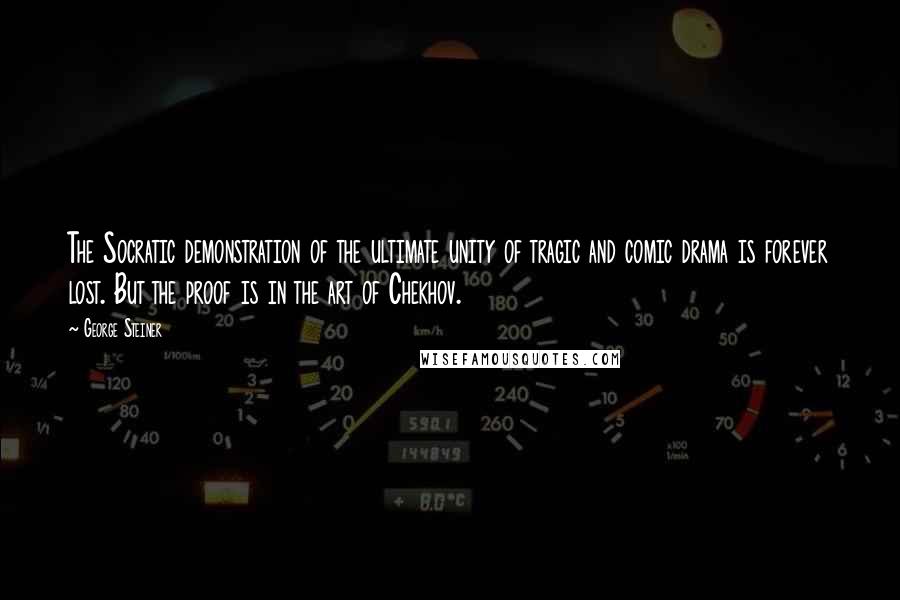 The Socratic demonstration of the ultimate unity of tragic and comic drama is forever lost. But the proof is in the art of Chekhov.
The Socratic demonstration of the ultimate unity of tragic and comic drama is forever lost. But the proof is in the art of Chekhov.
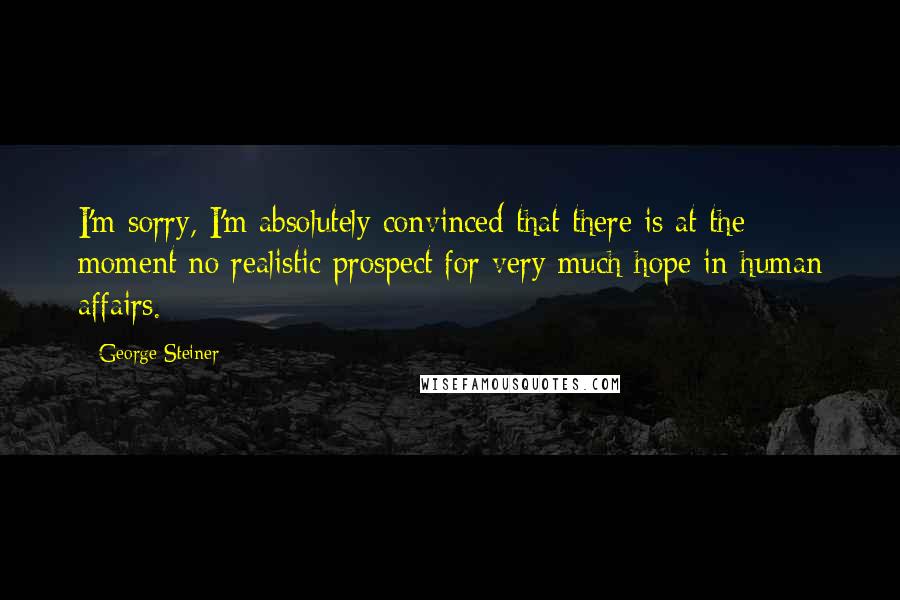 I'm sorry, I'm absolutely convinced that there is at the moment no realistic prospect for very much hope in human affairs.
I'm sorry, I'm absolutely convinced that there is at the moment no realistic prospect for very much hope in human affairs.
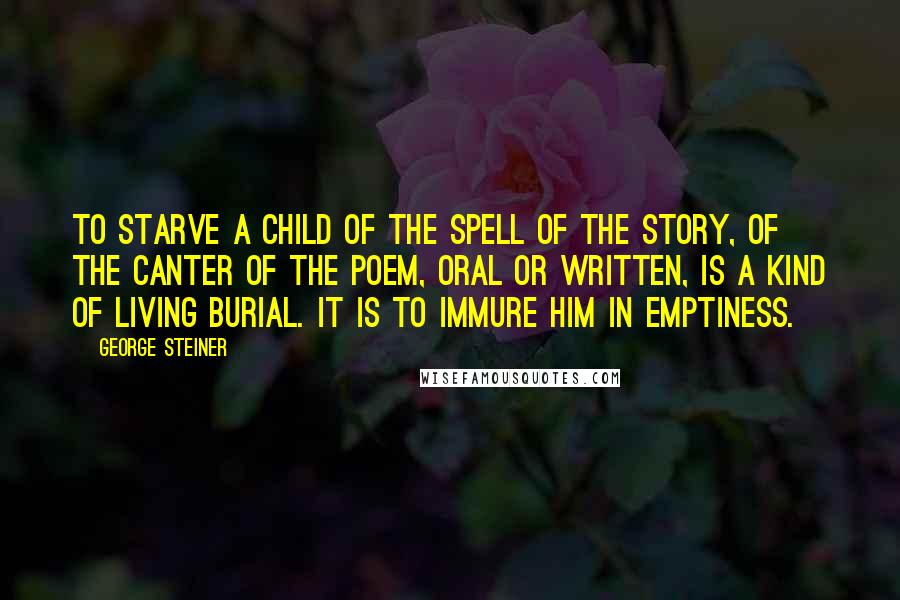 To starve a child of the spell of the story, of the canter of the poem, oral or written, is a kind of living burial. It is to immure him in emptiness.
To starve a child of the spell of the story, of the canter of the poem, oral or written, is a kind of living burial. It is to immure him in emptiness.
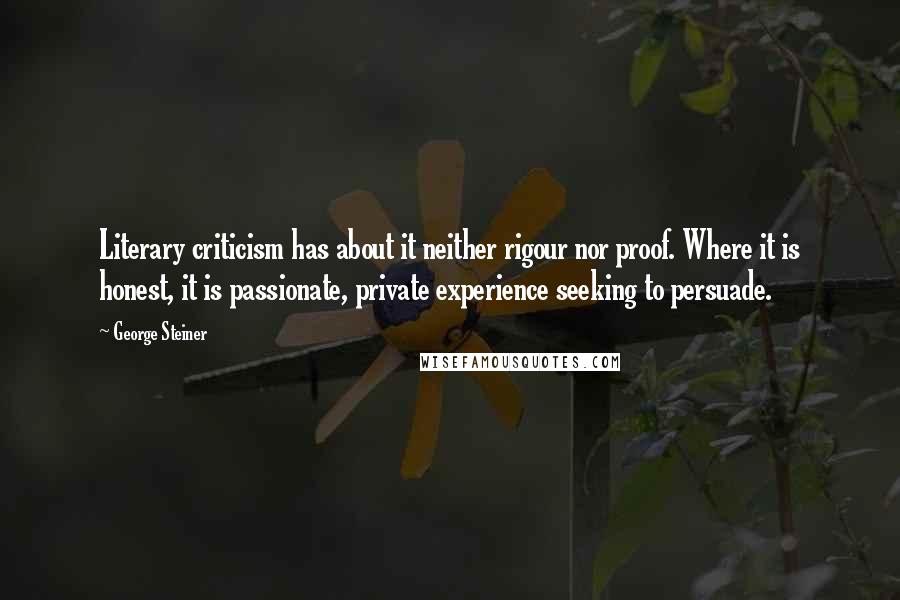 Literary criticism has about it neither rigour nor proof. Where it is honest, it is passionate, private experience seeking to persuade.
Literary criticism has about it neither rigour nor proof. Where it is honest, it is passionate, private experience seeking to persuade.

